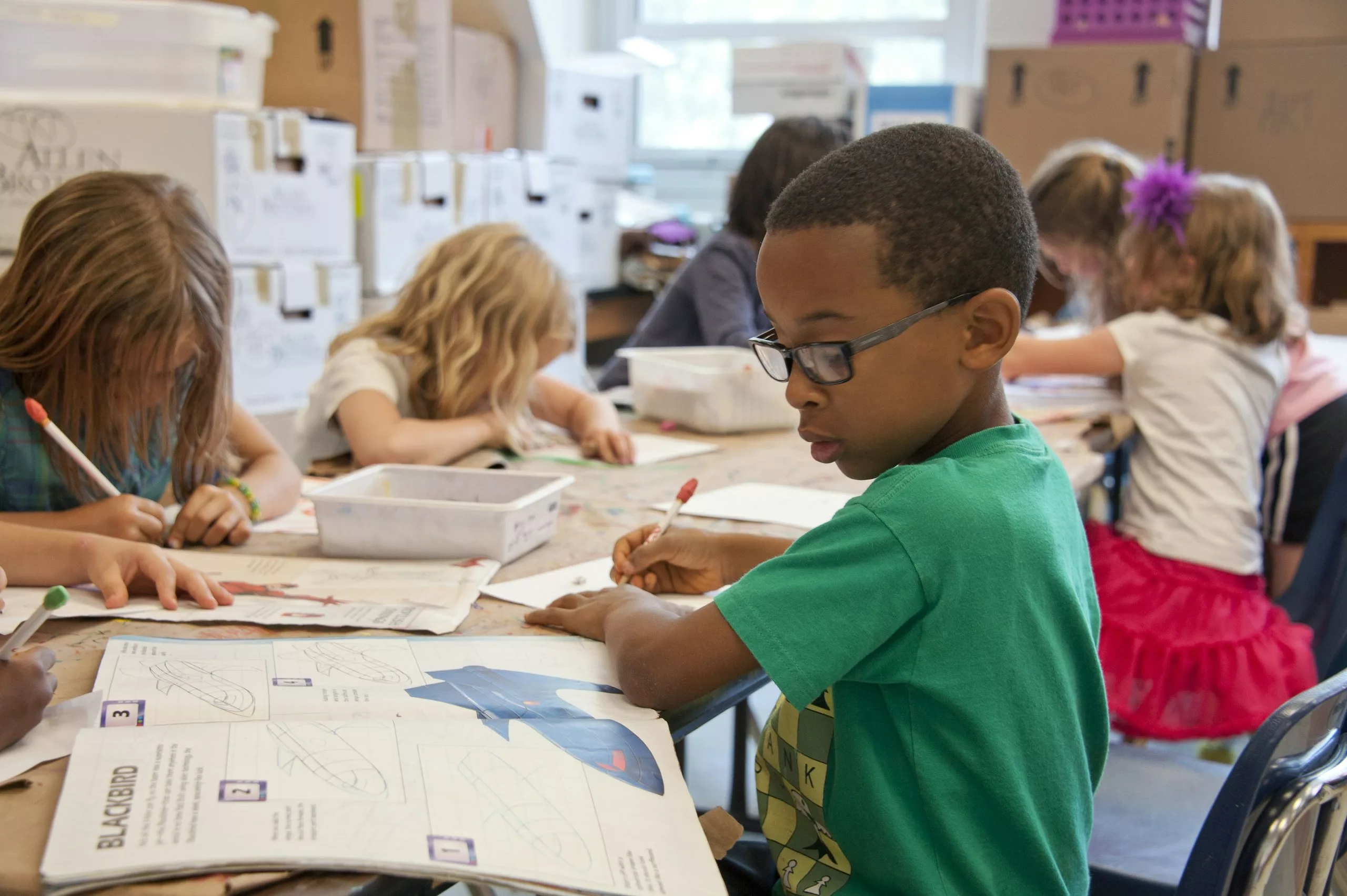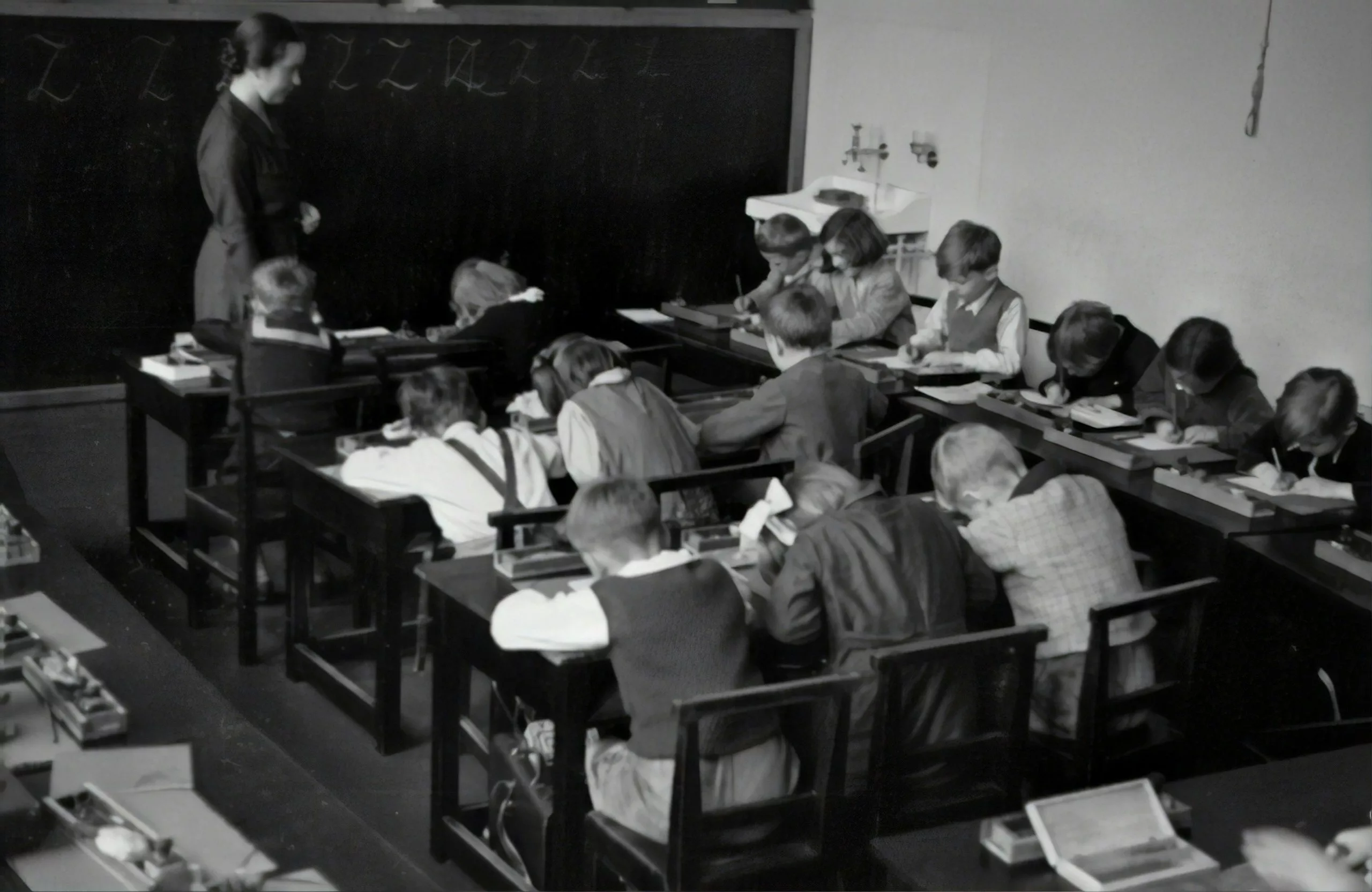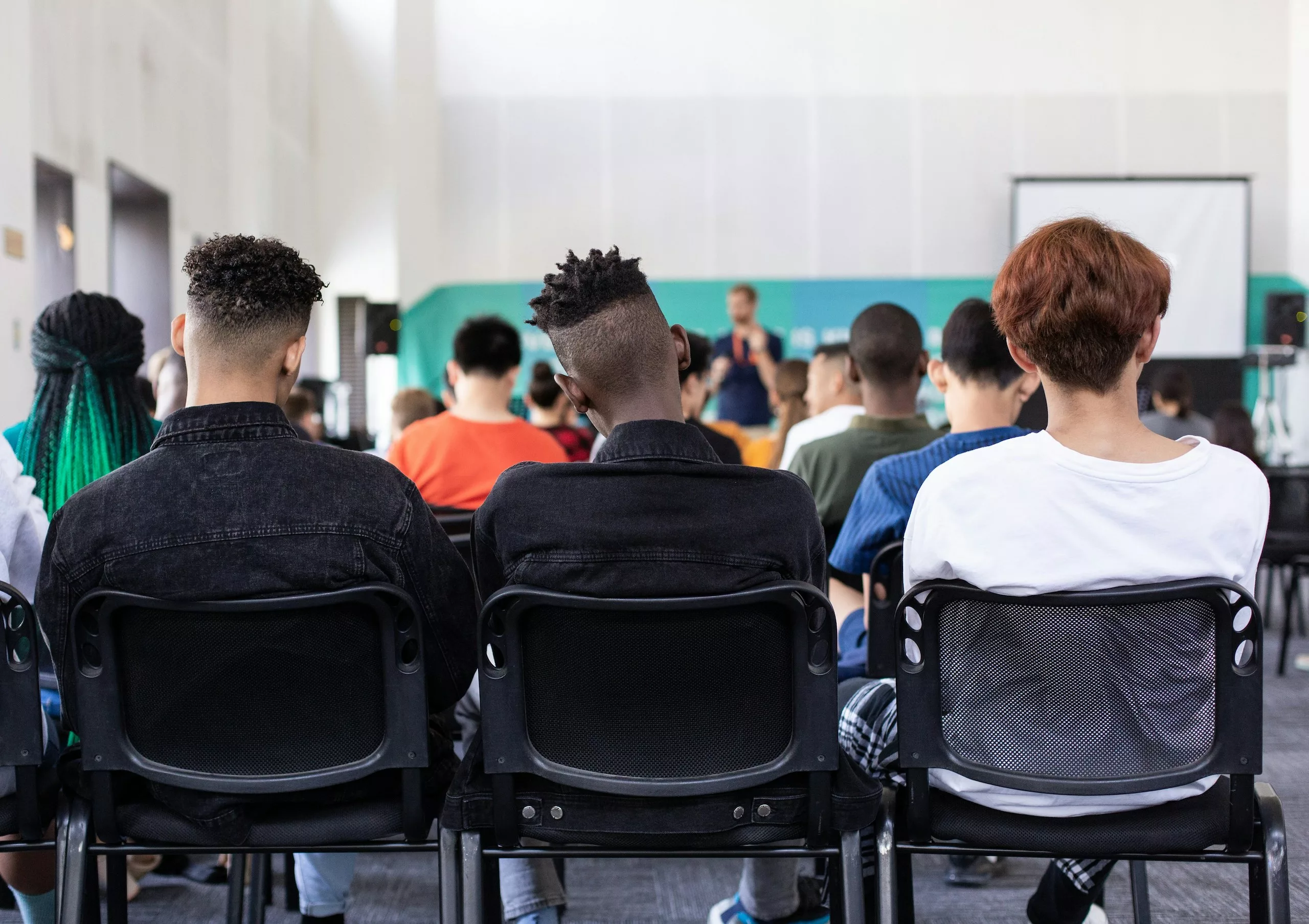THE RENAISSANCE OF SMALL SCHOOLS:
Revisiting the Future of Learning
by Angela L Fubler, BA, BCS, M.Ed.
Consultant, Eaglemann Learning & Innovation Group
Founder, Owner – Chatmore British International School, Bermuda
Introduction
This was a difficult Post to navigate, and I almost pulled it for something less “fact-ee”. It’s difficult to simplify a huge topic like: “How School Started” and I typically like to tell the whole story so, bear with me on this one. I know it is very light and certainly I am happy for the persnickety to fill in blanks – but it’s all out there for anyone to find and that’s way more fun!
I just want to get us to the point of being curious about why it is obvious for “Small Schoolers” to become champions for The Education Revolution. I wanted to find out if other people were feeling the same as me and Stuart, and Yvonne, Alan, Britanni, Andrea, Rosina, Gillian, Melody, Lisa, and Martina (a few of my special small school leaders, friends and owners from around the globe).
Would you say that it was time for a “Revolution” in the education of our children? Does it sound like too much effort? Alone it is! And to be clear, to my knowledge, none of us intend to become volatile or even too distracted from the good work of our schools to launch a full-on revolution – at least that’s not my plan. So, let’s start by being clear about what a Small Schools’ Revolution might look like.
What does the word “revolution” mean – for us?
Our Working Definition of the Word “Revolution”

I do believe the “time” revolution is a factor but for the moment, let’s eliminate any reference or analogy to space and time and elliptical revolutions or wheels. This leads us to the following definitions offered by Oxford Language online:
1. a forcible overthrow of a government or social order, in favour of a new system.
Response: Assuming small school leaders do not have the time to manage a school and forcibly overthrow the government – we can quickly rule this out as a viable definition for us. Agreed?
2. a dramatic and wide-reaching change in conditions, attitudes, or operation.
Response: “Small schools are creating a dramatic and wide-reaching change in conditions, attitudes, or operation”. Okay. Now this seems more like what I would like to see happen…and,
Cambridge Online Dictionary offers an even more interesting definition:
3. a very important change in the way people think or do things.
Response: Now, for me, this definition feels like a small schools’ revolution mindset. It feels right to make a statement that announces for the world that the Small Schools community are preparing to make a very important change in the way “people”, educators, governments and the global school community think about small schools and the impact they have on children, families and their local community.
Working Definition: The Small Schools’ Revolution is the action of small school leaders and owners to make a very important change in the way “people”, educators, vendors, governments, and the global school community respond to and think about smalls schools.
Let’s agree to sit with this one for the series and see what or how it evolves.
A “Very Brief” Historical Overview

Disclaimer: This is a very short mosaic of information that does not project in my voice but aims to set the tone for understanding our historical significance and planting the seeds of confidence for the way forward. Some of this section is my personal fact check of Wikipedia information and some of it is simply memory from my University studies of the history of school and education and random readings over the years. The validity of my memory can likely be forgiven by the end when you will have the opportunity to review The Revolution by Dr. Stuart Grauer. He offers a bit more detail and reference. That said, let’s scan through the history of school according to “Wiki-N-Me”:
Derived from the ancient Greek word “skholē,” the term for “school” initially denoted a place of leisure and contemplation. Over the centuries, the meaning evolved, encapsulating the essence of organized learning and the pursuit of knowledge. One of the earliest embodiments of this scholarly pursuit was Plato’s Academy, established in ancient Athens around 387 BC. Guided by the eminent philosopher Plato, the Academy not only laid the groundwork for systematic education but also marked a pivotal moment in the historical narrative of schools as centres for intellectual exploration and enlightenment.
As civilizations flourished, the notion of formal education found a new foothold in Western Europe during the Middle Ages. Monastic and cathedral schools emerged as supporters of learning, preserving, and transmitting knowledge in a society deeply rooted in religious principles. Notably, the Middle Ages witnessed the introduction of small school rooms, providing a more intimate setting for learning, where educators could engage closely with students, fostering a personalized and interactive approach to education that resonates with the ethos of small schools today. Following the Middle Ages, the Renaissance Period in Italy is often literally celebrated as the “rebirth of learning” and, this all shifted during what is now known as the Industrial Revolution.
Here, we will not have the space to go through all the impacts that the Industrial Revolution had on school and education. What we do note, is that the changes to education and schooling during this period created a global impact on the UK, Europe, and North America. No doubt, we all can agree that the Industrial Revolution was important and necessary for its time and brought about both favorable and adverse impacts in education.
We will make a few broad assumptions about the impact on the small schoolhouses and the shift to a larger school concept in the next section. Nonetheless, these early movements and institutions set the stage for the evolution of schools in the Western world, planting the seeds for a tapestry of educational traditions that would unfurl in the centuries to come and without knowing, lead us to the conversation we are having together today!
Making Assumptions

A few key phrases in the last section led me to think about the differences between the “original school” in Plato’s time and the “traditional school” that we have been experiencing since the industrial revolution. The transition from the ancient Greek concept of “school” as a place of leisure and contemplation to the high-stakes, large-group learning environments of today is a complex evolution shaped by various societal, economic, and technological factors. Below is a narrative of my assumptions:
During the ancient Greek era, education was often an elite pursuit, primarily accessible to the privileged few. The leisurely and contemplative nature reflected the luxury of time available to a select class of individuals dedicated to intellectual pursuits.
As societies evolved and expanded, the demand for education increased. The Renaissance and the Age of Enlightenment marked periods where knowledge became more democratized, leading to the establishment of formal educational institutions. The Industrial Revolution further accelerated the shift, emphasizing standardized education to meet the demands of a rapidly changing world. Mass schooling emerged as a response to the industrialized need for a skilled workforce.
In the 20th century, the education system underwent another significant transformation with the advent of compulsory education, designed to provide a standardized curriculum to the masses. This transition was influenced by economic needs, social ideologies, and a desire for societal progress.
Today’s high-stakes, large-group learning environments reflect the culmination of these historical shifts, driven by factors such as population growth, technological advancements, and the global economy. Standardized testing, large classrooms, and a focus on measurable outcomes are responses to the challenges and opportunities of the modern era. While these developments have facilitated access to education for many, they also raise questions about individualized learning, student engagement, and the broader purpose of education in an increasingly diverse and complex world.
I prepared you for a connection to the “time revolution” and here it is:
With so much pressure and emphasis on schools to be like education-counseling centres for the masses, I believe it is time to openly acknowledge and loudly proclaim the powerful impact on academic gains, individual growth, mental health, close knit relationships, family empowerment, “leisure and contemplation” that small schools continue to have today! I believe it is time for many small schools to invest in higher standards of operation and accountability – because more than ever the need for high quality adaptable small schools is likely required. In the words of Chatmore, I believe it is time for small schools to confidently bring our unique, inspiring, and transformational energy together for our individual and collective benefit! It is time to thrive together as the 21st Century “centres for intellectual exploration and enlightenment!
What do you think about the Revolution so far?
Our Small Schools Revolution

Amidst the backdrop of high-stakes, large-group learning environments, the revolution of small schools emerges as a compelling response to the complex evolution of education. While the trajectory of formal education has leaned towards mass schooling, standardized approaches, and measurable outcomes, small schools represent a counter-current, advocating for a return to the intimate and contemplative roots of learning.
The revolution of small schools is propelled by a commitment to personalized education, fostering individualized learning experiences that honor the diverse strengths and needs of students. In contrast to the sprawling nature of large classrooms, our small schools prioritize a close-knit community where educators engage intimately with students, cultivating an environment conducive to intellectual exploration and individual growth.
Our movement also reflects a desire to revisit the original essence of schooling as a place of “leisure and contemplation and centres of intellectual exploration and enlightenment”. Small schools, in their pursuit of holistic education, strive to create spaces where time is not merely a constraint but a liberating force, allowing for in-depth exploration, critical thinking, and a genuine love for learning.
As we navigate the complexities of modern education, the revolution of small schools invites us to reconsider the purpose and impact of our learning environments. It urges us to explore alternative models that prioritize the individual student’s journey, fostering a more profound connection to knowledge and a renewed sense of purpose in education. It beckons us to pursue accreditation, affiliation, and proper safeguarding standards.
Take some time over the next week to review the article written by Dr. Stuart Grauer, my esteemed colleague, and a prominent figure in the small schools’ revolution. Discover the connections. Let it respond to the assumptions we might have about the impact of small schools. I think the findings offer another clear statement for the collective benefits, relevance and support for a united Small School Revolution. What is our response?
Conclusion

The revolution of small schools stands as a beacon of hope amidst the challenges posed by high-stakes, large-group learning environments. Driven by a commitment to personalized education and a return to the roots of intimate and contemplative learning, small schools offer an alternative narrative in the ever-evolving landscape of education.
As we heed the call to reconsider the purpose and impact of learning environments, the small school revolution, with its emphasis on quality assurance, individualized learning experiences, community engagement, and the holistic development of students, prompts us to envision a more meaningful and student-centric approach to education.
Our revised definition of the Small Schools’ Revolution is “the proactive and united stance of small school leaders, owners, families, and alumni to make a very important change in the way “people”, educators, vendors, governments, and the global school community respond to and think about smalls schools.”
Our Small Schools Revolution is not just about the size of schools but about transforming the very essence of education. It beckons us to embrace a philosophy that values the unique journey of each student, fostering an environment where time, contemplation, and a genuine connection to knowledge become the guiding forces in the pursuit of learning.
Our small school revolution is not merely a reaction; it is a proactive stance, inviting us to shape a future where education is not just a means to an end but a transformative and enriching journey for every learner.
Until next week…Let the Revolution Begin!
Contact Angela Fubler

Join the Small Schools Movement!
Would you like your organization or small learning community showcased in our member spotlight? If you are not yet a member of the Small Schools Coalition, we welcome you to become a friend free of charge.
If you are already a member, contact us to discuss how we can give you the complimentary platform to show the entire world what makes your small school special!


Recent Comments